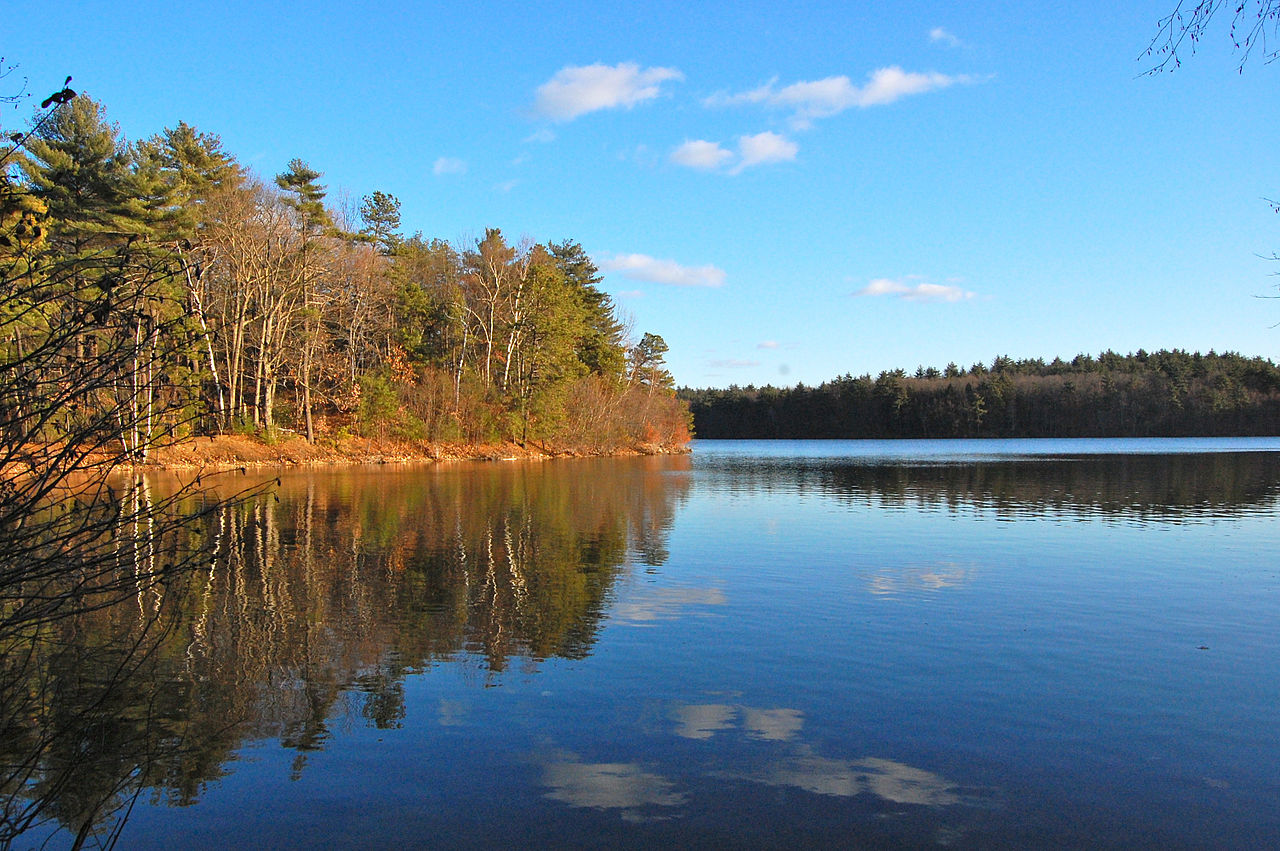Henry David Thoreau was born in 1817 in Concord, Massachusetts. Schoolteacher, pencil-maker, odd-jobber and surveyor, he was also a writer and philosopher mentored by Ralph Waldo Emerson and a gifted naturalist.
In 1845, the Harvard graduate built himself a cabin on the shores of Walden Pond in Concord and embarked on an experiment in living simply and deliberately. Walden, the book he wrote about the two years, two months and two days spent by the pond, is now a beloved classic.
Thoreau was a man of many facets. He was mechanically inclined (tinkering with recipes and machinery in his father's workshop, he helped make "J. Thoreau & Son" pencils the finest in the country), well-read in the literature of ancient India and China as well as Greece and Rome, and a close student of nature who anticipated many insights of modern ecology. His detailed records of local flora and fauna have helped scientists understand how the New England climate has changed between his day and ours. Thoreau was fascinated by Native American cultures as well, and made several trips to the Maine woods to learn from Penobscot guides. Born into a family of fierce abolitionists, Henry assisted runaway slaves and his writings helped to galvanize public opinion in the North against accommodation to slavery. He died of tuberculosis in 1862, while the nation was mobilizing for Civil War to decide the issue.
Thoreau is remembered today for his contributions to literature and science, as a proto-environmentalist who first envisioned our National Parks system, and as the author of "Civil Disobedience," which has inspired nonviolent movements for social justice around the world, including those led by Mahatma Gandhi and Martin Luther King, Jr.
Today, admirers not only read Thoreau's writings, they also visit Concord to pay their respects to Thoreau country. Visitors to Walden Pond can see the house site and step inside a replica of the cabin. Each July, scholars and enthusiasts gather from around the world to honor Henry's birthday with speeches, research papers, guided walks and canoe trips, food, and music. (For more information, visit the Thoreau Society website.)


